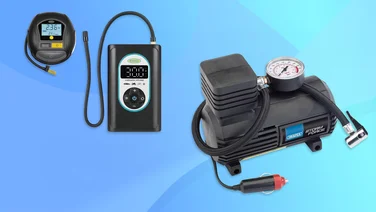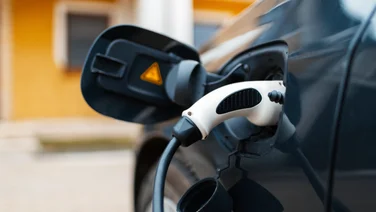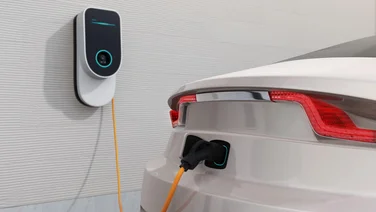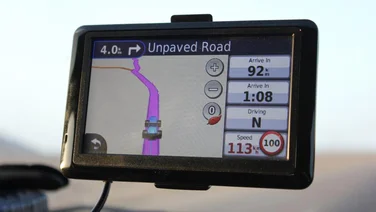To help us provide you with free impartial advice, we may earn a commission if you buy through links on our site. Learn more
- Get a free home EV charger installation quote today
- What EV charging grants are now available?
- Who is eligible for the new EV Chargepoint Grant?
- Can landlords and small business owners apply for a grant?
- Is the grant scheme the same for those living in Scotland?
- Is there still a grant to help with buying a new electric vehicle?

The UK government has announced it will ban the sale of all new internal combustion engine cars – both petrol and diesel – by 2030, with hybrids likely to follow by 2035. This will force the adoption of fully electric vehicles, at least for new purchases.
As it happens, EV registrations made up 32.9% of the overall market share by the end of 2022, while in July 2023 alone, 16% of all new car registrations were electric vehicles. So there are more EVs and hybrids on our roads than ever before.
But, for many, this still presents a problem as the public infrastructure just isn’t there yet and our ageing housing stock isn’t necessarily built to accommodate electric vehicle charging, forcing owners to figure out their own solutions.
Rewind a few years, and the UK government was basically giving away home charging points via its Electric Vehicle Homecharge Scheme, with grants for homeowners that covered the majority of the installation cost. Similarly, many EV manufacturers were also offering to cover those costs in an effort to entice buyers to make the switch to electric.
Unfortunately, as of last year, things have changed and the number of grants available has diminished somewhat. But it’s not all doom and gloom as financial help is still out there.
Get a free home EV charger installation quote today
Save yourself some time and take our quick survey below to be provided with a quote for EV charge point installation that matches your needs.
What EV charging grants are now available?
While you’d be forgiven for thinking it was a bad April Fool’s joke, the Electric Vehicle Homecharge Scheme (EVHS) had been scrapped by 1 April 2022. The EV Chargepoint Grant that replaced it has dramatically reduced the number of those eligible and how much they are entitled to claim.
As of writing, you can get a subsidy to cover 75% of the cost of buying and installing a socket, up to £350 (including VAT), should you meet all of the criteria for eligibility.
There are also grants available for landlords, with the government offering a similar discount on installation, but for up to 200 residential properties, and 100 grants for commercial properties.
READ NEXT: The best home EV chargers to buy
Who is eligible for the new EV Chargepoint Grant?
Eligibility is the main bone of contention because the owners of houses can no longer apply for financial assistance. The scheme is now exclusively for those who own a flat, or those who rent a property in its entirety and have the necessary permissions – from the landlord, the freeholder, or the managing agent – to install a charge point.But the eligibility criteria is more complex still, as the property must have its own private off-street parking space that you have access to at all times – you may even have to provide Land Registry title deeds to prove this.
The type of vehicle you own is also important, as most hybrids are excluded unless they have CO2 emissions below 50g/km. You can find an exhaustive list of eligible vehicles on the government’s website, so it is worth checking that out first, perhaps even before buying an EV.
If you lease an electric vehicle, you have to have done so for at least six months, and the same period of time applies to using an electric vehicle from a company car scheme.
If you’ve only just ordered an electric vehicle – and, importantly, can prove it – you can still apply, increasing your chances of receiving the grant and the installation before your new car arrives.
Can landlords and small business owners apply for a grant?
Yes. In fact, the current scheme is very much set up to encourage landlords and owners of small-to-medium enterprises to install electric vehicle infrastructure and charge points.
We previously mentioned the cost savings that are available to landlords, but anyone leasing, or managing a multi-tenancy residential property can claim up to £30,000 or 75% of the installation cost as part of an EV infrastructure grant. Charging infrastructure must be installed to a minimum of five parking spaces, with at least one active charger (cabling and charge point installed).
Similarly, a Workplace Charging Scheme offers up to £350 per socket installed, and is capped at 40 sockets per applicant business. It’s a little more complicated, as businesses must have off-street parking and then prove there is a legitimate business need for electric vehicle charge points – such as running electric vans or delivery vehicles, for example.
Finally, there is also a grant for businesses with 249 employees or fewer that assists in creating an EV charging infrastructure. Again, the spaces must be private and off-street, and the grant is capped at £15,000 per building, but this will provide up to £500 for passive and an additional £350 (£850 in total) for active infrastructure per parking space for staff or fleet use.
A full list of the grants available and the eligibility criteria can be found on the government website.
Is the grant scheme the same for those living in Scotland?
The OZEV EV Chargepoint Grant is exactly the same for residents in Scotland and the same rules apply, but there are additional funding methods available.
The Energy Saving Trust Domestic Chargepoint Funding Scheme (a bit of a mouthful, admittedly), means Scottish EV owners can receive £400 off the cost of buying and installing a home charger. This can be combined with the OZEV grant for a potential saving of £750.
This additional £400 is generally reserved for the rural and remote electric vehicle owners – the applicants living in small towns, rural or remote areas, or on the islands of Scotland – and they have a postcode checker on their website you can use to see if you’re eligible.
However, used electric vehicle owners can also apply for this grant if they’ve purchased their electric vehicle through the Energy Saving Trust’s Used Electric Vehicle Loan scheme.
READ NEXT: How long does it take to charge an electric car?
Is there still a grant to help with buying a new electric vehicle?
Electric cars are no longer covered by the low emissions vehicle plug-in grant, however other types of vehicle are.
Motorcycles and mopeds, for instance, benefit from a discount up to £500; while depending on the size, the maximum discount you can enjoy for a van is up to £5,000. Trucks can receive a maximum discount of £25,000; and taxis and accessible vehicles can receive a discount of up to £7,500. So long as the eligibility criteria are met, these can also qualify for various discounts through the grant.
It’s worth noting that you do not apply for this grant – the seller includes it as a discount in the purchase price.
To check that the vehicle of your choice is eligible for a discount is to visit the dedicated page on the government website.






